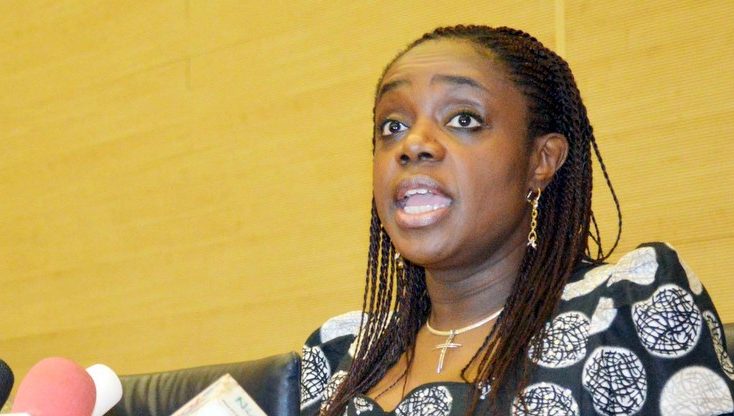We’ve Received 2,251 Tips From Whistleblowers -FG
FUNSHO AROGUNDADE

The Federal Ministry of Finance said it has received 2,251 tips from the public since the introduction of the Whistleblowers policy.
Releasing the data update on Friday, Mr. Festus Akanbi, Special Adviser, Media to Minister of Finance, on behalf of the minister, Kemi Adeosun, said the ministry has received as at Friday 24 March various communication includes enquiries, tips, compliments and general advice from the public.
WHISTLEBLOWER UPDATE (as at 24th March, 2017)
- TOTAL COMMUNICATION RECEIVED – 2,251
Communication includes enquiries, tips, compliments and general advice from the public.
- Website (whistle.finance.gov.ng) – 95
- Calls – (09098067946) – 1,550
- SMS – 412
- Emails ( whistle@finance.gov.ng) – 194
- TOTAL NUMBER OF TIPS RECEIVED – 282
- Tips received through Calls – 49
- Tips received through SMS – 87
- Tips received through Website – 95
- Tips received through E-mail – 51
- ACTIONABLE TIPS RECEIVED–154
Some of the tip types include:
- Contract Inflation and Conversion of Government Assets to Personal use
- Ghost workers
- Payment of unapproved funds
- Embezzlement of salaries of terminated personnel
- Improper reduction of financial penalties
- Diversion of Funds meant for distribution to a particular group of people (farmers)
- Diversion of funds to personal commercial Bank Accounts to earn interest
- Non-Remittance of Pension & NHIS Deductions
- Failure to Implement projects for which funds have been provided
- Embezzlement of funds received from Donor agencies
- Embezzlement of funds meant for payment of Personnel emoluments
- Violation of TSA regulations by keeping funds in Commercial banks
- Violation of FIRS (VAT) regulation by adjusting Value Added Tax payment
- Non-procurement of equipment required for Aviation Safety
- Money laundering and Diversion of funds meant for approved projects
- Illegal Sale of Government Assets
- Diversion of Revenue (IGR)
- Financial misappropriations (embezzlement)
- Concealed bailout funds
- Mismanagement of Microfinance banks
- Illegal Recruitments
- Violation of procurement Act
The Federal Government on Wednesday 21 December, 2016 took a major step by initiating the whistle-blower policy.
The policy was approved at the meeting of the Federal Executive Council, chaired by President Muhammadu Buhari inside the Council Chamber of the Aso Rock Villa.
According to the Minister of Finance, the primary goal of the policy is to support the fight against financial crimes and corruption, by increasing exposure of financial crimes and rewarding whistle-blowers.
In order to promote such exposure, whistle-blowers are encouraged and offered protection from harassment or intimidation by their bosses or employers.
The hope is that more looted funds will be recovered through the encouragement of voluntary information about corrupt practices.
So far, the Minister of Information, Alhaji Lai Mohammed said the policy has been instrumental in the recovery of about N50 billion in looted funds.
The whistle-blower policy consists of three major components.
One focuses on the channels for reporting information and the type of information to be reported.
Anyone who has “authentic information about violation, misconduct, or improper activity which can impact negatively on the Nigerian people and government” should report it through one or the other of three channels: via SMS to 0909 806 7946; via email to Whistle@finance.gov.ng; or by logging on to the whistle-blowers’ portal at <http://www.finance.gov.ng>.
The second deals with reward for reporting fraud: The whistle-blower will get between 2.5 per cent (minimum) and five per cent (maximum) of the recovered loot, provided that “there is a voluntary return of stolen or concealed public funds or assets on the account of the information provided”.
The third component assures whistle-blowers of protection: “If you feel that you have been treated badly because of your report, you can file a formal complaint. If you have suffered harassment, intimidation or victimisation, for sharing your concerns, restitution will be made for any loss suffered”.
The policy seems to be a stop-gap measure pending the passage of the Whistleblower Protection Bill which is meant to protect persons who expose financial improprieties and corruption in public and private organisations.










